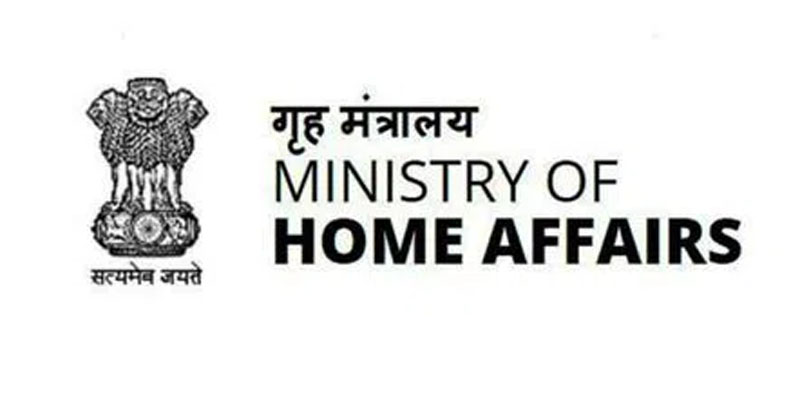Conduct fresh mapping of Dal lake: Parl Panel
Mohinder Verma
JAMMU, Mar 20: Union Ministry of Home Affairs (MHA) has told the Department-Related Parliamentary Standing Committee on Home Affairs that nearly 70,000 works/projects are likely to be completed in the Union Territory of Jammu and Kashmir by the end of current financial year. Moreover, sufficient funds have been kept at the disposal of the District Development Councils (DDCs), Block Development Councils (BDCs) and all the Urban Local Bodies (ULBs) for transformation of developmental profile of the areas under their respective jurisdiction.
As per the report of the Department-Related Parliamentary Standing Committee on Home Affairs presented in the Lok Sabha today, during the current financial year Rs 33,923 crore have been earmarked for meeting salary, pension, 7th CPC Allowances/LTC and other revenue component deficit and completion of the projects under UT and District Schemes.
Nearly 70,000 works/projects are likely to be completed by the end of current financial year, the MHA said, adding under all UT level schemes 33000 projects were undertaken and 9100 were completed till December 2022 and remaining are likely to be completed by end of current financial year. Similarly, 48012 projects were undertaken under DDC, BDC, PRI and District Schemes out of which 28000 were completed till December 2022 and remaining will be completed by ending March 2023.
Besides, 481 urban sector infrastructure projects have been undertaken in ULBs during current financial year 2022-23, out of which 350 projects will be completed by end of March 2023. Moreover, in the current financial year, Rs 1,275 crores have been allocated to 4,290 panchayats/ DDCs/BDCs for undertaking rural works at Panchayat level and other district sector schemes. Further, Rs 313 crores have been allocated to 75 ULBs for various developmental works.
Pointing towards the steps taken by the UT Administration to delegate financial powers and adequate representation to the minority community in District Development Councils/ Block Development Councils in J&K, the Parliamentary Panel has recommended that due representation may be given to the minority communities and smaller groups in the District Development Councils and Block Development Councils to facilitate proper addressal of their issues.
About the prgrammes undertaken by the UT Administration for conservation and restoration of Dal lake, the Parliamentary Panel said, “there are large number of encroachments in the Dal lake area. Weeds, silt and untreated sewage are increasingly choking the beautiful lake, which draws tens of thousands of tourists each year. Moreover, the waste discharge from houseboats also adds to the pollution in the lake”.
Stating that visible outcome of the projects are yet to be seen, the Committee has recommended that UT Administration may conduct fresh mapping of Dal lake to get an understanding about the percentage of the lake’s water which is relatively clean or severely degraded. “This will help the UT administration to make a conservation plan for Dal lake as well as in removing encroachments fruitful”, the Parliamentary Panel said, adding “the cleaning of the lake should be completed within a time frame. Additional allocations, if required, may be sought from the Ministry of Finance at the Revised Estimates stage for this purpose”.
The Committee also sought to know about the rehabilitation policy framed for houseboat owners in Jammu & Kashmir who want to cease their houseboat business. On this, the UT Administration has replied that the business scenario of houseboat owners has remained vibrant during the previous year which witnessed the highest ever tourists flow and all possible assistance including timber on concessional rates is being provided to houseboat owners and Shikhara owners for minor repairs/major repairs or reconstruction of their houseboats/ Shikaras.
“In the current positive scenario related to tourism, the need for the cessation of the houseboat business is unlikely”, the J&K Government has conveyed to the Parliamentary Panel.
Observing that Ambri apple is unique to the Kashmir region and it has great demand at the local as well as at the national level, the Committee has recommended that the UT Administration should consider growing Ambri at a commercial scale, provide geo-tagging to the fruit and popularize its unique characteristics like the attractive sweet taste, crispiness, fragrant flavor, aroma, etc for exporting these apples to the national and international markets.
“This in turn will boost the revenue for the local farmers as well as conserve the indigenous variety of apples of the Kashmir region”, the Committee said, adding “Gucchhi mushroom grows in the Kashmir region and is of very high commercial value as such UT Administration should explore the possibility of commercial harvesting of Gucchhi as it can be a good source of income for the local people of Kashmir”.


